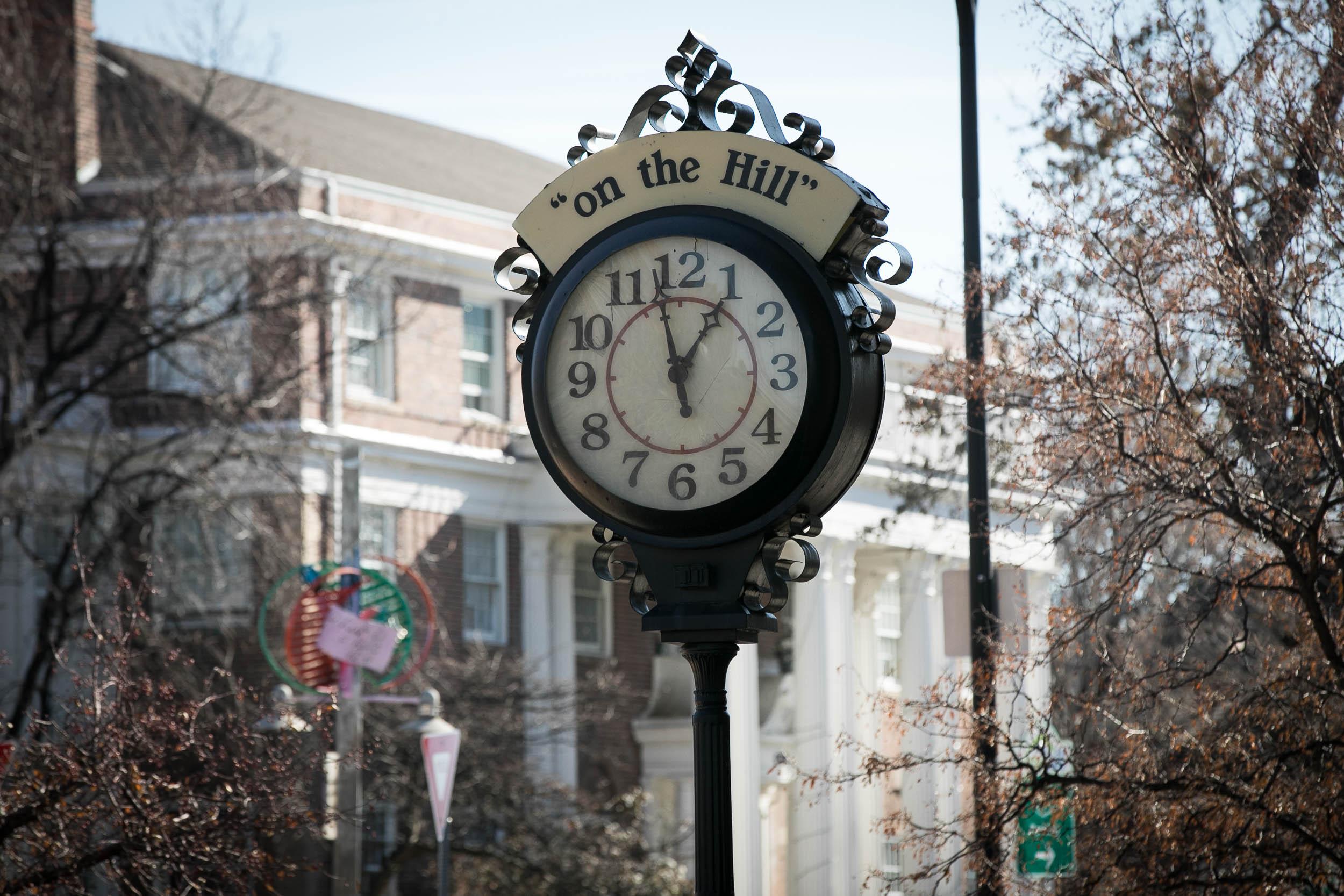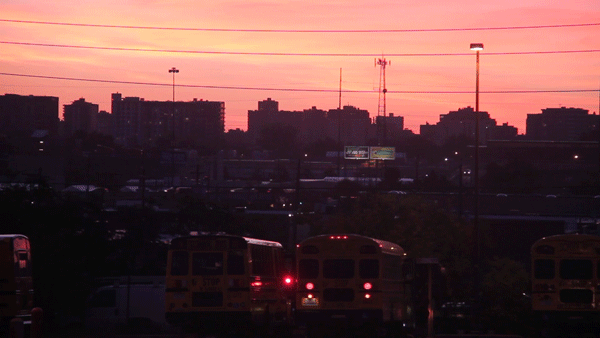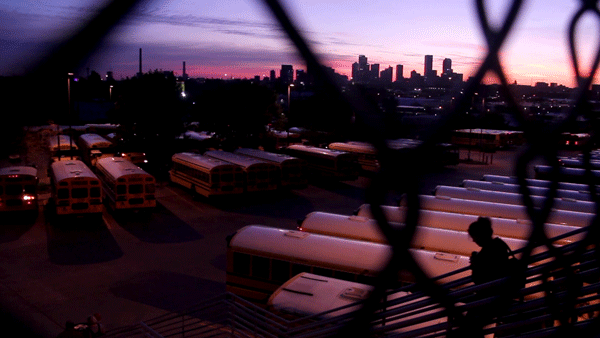
Residents of 48 states will turn their clocks forward in March to start eight months of daylight saving time. For many, giving up that hour means days of sleep-deprived disorientation, and so Geoff Carpenter reached out to Colorado Wonders to ask: Why do we still do this?
To be specific, Carpenter wanted to know why the state legislature hasn’t yet freed Colorado from the tyranny of changing its clocks.

"I’m personally not a fan of daylight saving. I have always found it inconvenient," he wrote in an email, citing studies about the car crashes, sleep loss and other issues associated with clock changes.
Well, he's not the only one. Plenty of state lawmakers would like to see clocks locked onto the same time year-round. It's the topic of a Republican bill in the state legislature and a bipartisan bill in the U.S. Congress.
In Colorado, the debate stretches at least to the '80s. In more recent times, former state Sen. Greg Brophy has been one of the loudest crusaders. He's always hated the disorienting "spring forward," when 6 a.m. becomes 7 a.m. and you lose an hour of sleep.
“I don’t really mind the fall change. But gosh, I hate the change in the spring. It hurts so much," Brophy said.
If you've heard that it's farmers who want to keep changing clocks, Brophy is here to prove that idea wrong. In addition to his life in politics, he owns and operates a farm near the Eastern Plains town of Wray.
One spring, Brophy took to Facebook to vent his frustration with the lost hour, and was surprised when that single gripe attracted more comments than anything else he'd ever posted. And some pointed out that as a state lawmaker, he had the power to do something about this annual misery.
So back in 2011, he launched into a legislative mission to do away with time changes in Colorado — a mission that has failed, time and time again. As he learned, the opponents of time shifting are up against a century of precedent, and some powerful present-day business interests.
The dawn of daylight time
The idea of shifting time to capture daylight took hold in World War I. Germany and Austria-Hungary first embraced daylight saving time as a way to save energy, as National Geographic has reported.
It spread across the West, reaching the United States with a law in 1918. Over the following decades, individual states embraced it — or didn't — in a patchwork fashion.
Finally, Congress passed the Uniform Time Act in 1966. The result: 48 states now alternate between standard time and daylight time. Arizona and Hawaii remain on standard time year-round.

The goal, according to one expert, was to get the best of summer and winter.
"The thing that was clear in 1966 was that people liked long evenings in the summer, and people wanted it to not be dark in the mornings in the winter," said Scott Yates, a self-described "time nerd" in Denver.
But Yates hates the idea. He has created a "Lock the Clock" movement. It's not that he cares what time the sun rises or sets, he just wants the hour hand to stop jumping around.
"What they didn’t fully understand was that the switch itself is really deadly," he explained. Studies have found temporary increases in car crashes, heart attacks and depression, all linked to time changes.
Why not get rid of it?
When Brophy began his time crusade, it was with a bill that would have locked Colorado into year-round daylight saving time. That way, he figured, you'd get the benefit of long summer evenings without the painful time changes. The trade-off would be darker winter mornings.
The proposal did OK, but eventually lost by a single vote in committee, he said.
"Normally in this building, there are interest groups that come in and work on issues for you or whatnot, and I had nothing," he said. "It was just all organic."
The other side, however, is quite organized, according to Brophy.
So, who was it? Alarm-clock makers? The caffeine lobby? The Rule-Followers of America?
Nope. He blames the ski industry. Colorado Ski Country USA lobbied against Brophy's proposal, warning it would disrupt their operations. With the sun rising an hour later on winter mornings, the resorts would have to open at later hours.
"Sunrise would occur likely not until after 8 a.m. during the key winter months of December, January and February," said Chris Linsmayer, public affairs director for Ski Country USA, at a committee meeting on a subsequent time change bill in 2017.
"That would hamper the ability of our ski areas to get their operations up fully and running, disappointing and causing the loss of an hour from the business day that ski areas are unlikely to make up in the evening," Linsmayer continued.
Brophy points out that the resorts could just change their operating hours, since the law would not be changing celestial mechanics or the amount of sunlight in a day. But ski reps were worried people wouldn't want to stay on the mountain until 5 p.m. or later, especially on Sundays.

The ski industry also dislikes the other option: staying on standard time year-round (no springing forward) would mean earlier sunsets in the summer, cutting into tourism activities in those months, they said.
Lawmakers have proposed six different time-change bills since 2011, and the industry has fought each one. They're not the only opponents; truckers, hotels, filmmakers and other sectors of the tourism industry also worried about tinkering with the clock.
The latest proposal
But lawmakers keep trying. This year’s lucky contestant is Senate Minority Whip Ray Scott, a Republican.
"It’s kind of been funny," Scott said. "Every year someone runs the bill, and yes, every year the ski industry comes in and screams and hollers, and we don’t pass anything because of the political pressure... But who are we gonna listen to? One special interest or are we going to do the right thing?"
As introduced, Scott's bill aimed to keep Colorado on daylight saving time year-round. However he hopes to amend it to instead put the question to voters: Should we lock the clock on daylight saving time — with later summer sunsets — or standard time — with earlier winter sunrises?
Whatever Coloradans chose, however, would only take effect if the federal government enacts its own law, which could happen, actually. A bill in Congress has attracted some notable bipartisan sponsors, including Republican Sen. Marco Rubio and Democratic Sen. Dianne Feinstein.
The federal "Sunshine Protection Act" would eliminate time changes and lock states into either daylight saving or standard time year-round. President Donald Trump has tweeted his support for the idea.
Scott's argument: Coloradans should decide between the two options now, standard or daylight, just in case the federal bill passes.
“The only thing we can do is ask the voters. Then, if they approve, when the federal government makes the change, we would be locked in," he said. Perhaps more than anything, passing the bill would signal growing support for moving away from time changes.
“That’s our most precious commodity right, is time? We only have so much,” he said.
Florida, Oregon, Washington and several other states have already passed similar bills, setting them up for a potential shift to year-round daylight saving time. The European Union’s moving even faster: They're set to stop changing clocks in 2021.
Editor's note: This article was updated to correct a reference to Germany and Austria-Hungary during World War I.









